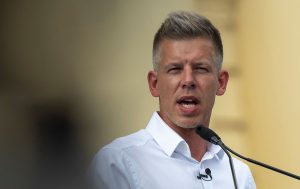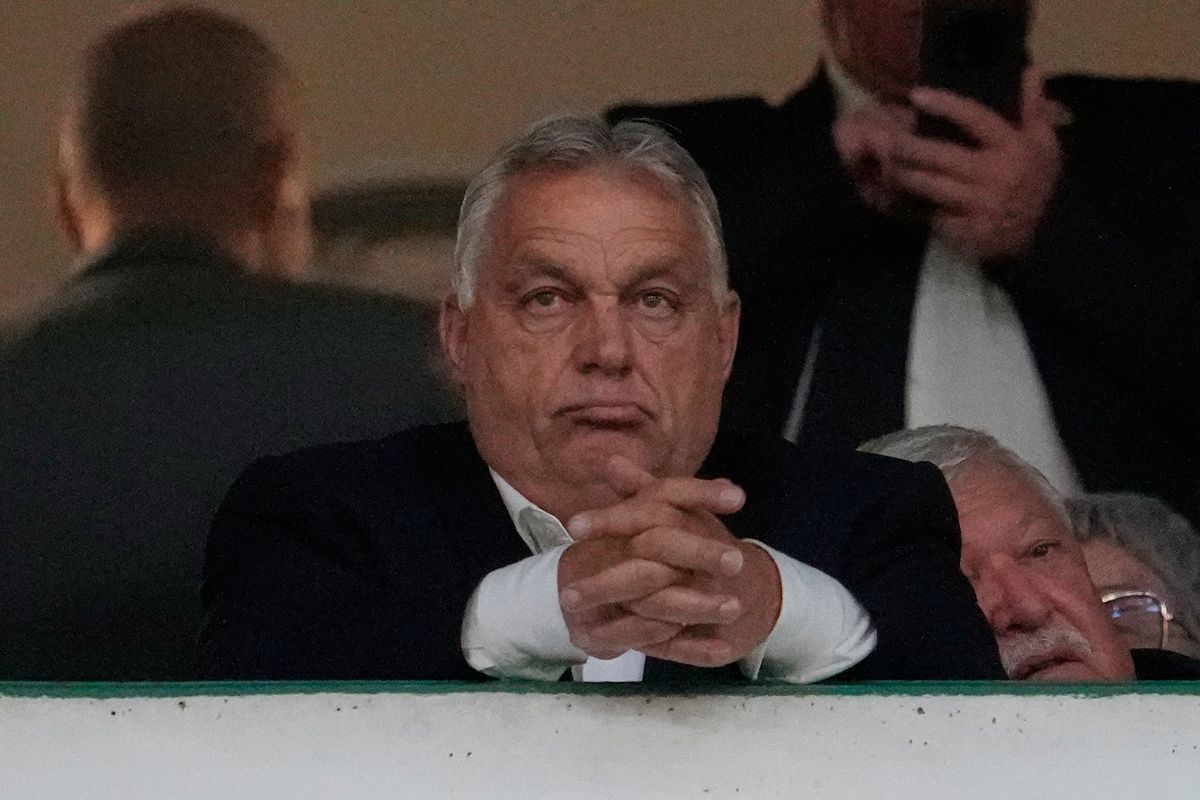BUDAPEST, Hungary (AP) — Hungary’s two main political parties will mark a national holiday on Thursday by holding rival demonstrations that will likely bring hundreds of thousands to the streets and kick off a campaign for elections next year.
With the ballot approaching in April, long-serving Prime Minister Viktor Orbán — trailing in most polls to his main political rival, Péter Magyar — hopes to use Thursday’s show of force to reinvigorate his base that has had its confidence shaken by a series of political scandals and years of high prices and economic stagnation.
Magyar, a onetime insider within Orbán’s Fidesz party who erupted onto Hungary’s political scene last year, aims to channel a growing number of dissatisfied voters into what will be both a political rally and anti-government protest. Observers of Thursday’s events will be watching the size and enthusiasm of the crowds as a barometer for which way the needle is tilting within the country’s polarized political climate.
National holiday in Russia’s shadow
Thursday’s marches, which will culminate with speeches by Orbán and Magyar, coincide with the 69th anniversary of Hungary’s failed 1956 anti-Soviet uprising. The date has long been a sobering reminder of Moscow’s domination of Hungary during the Cold War, but Orbán’s warm relations with the Kremlin and combative approach toward Ukraine have in recent years transformed the country’s posture toward its former occupier.
That alignment was underscored last week when U.S. President Donald Trump announced he would meet in Budapest with Russia’s Vladimir Putin for talks on ending the war in Ukraine. Orbán, a close Trump ally, celebrated the move as a personal political achievement, and said Hungary was “the only place in Europe” such talks could be held.
Yet Orbán will go into Thursday’s demonstrations with a sense of deflation after the White House announced Tuesday that the planned meeting will not go forward, at least not for now. His supporters will still hold what’s been billed as a “peace march,” and his speech is expected to focus on what he argues are the dangers posed by Ukraine and the need to negotiate with Moscow.
Many Hungarians, however, viewed the prospect of Putin’s visit as carrying dark historical echoes. Hosting the Russian leader so near the anniversary of the 1956 uprising — crushed by Soviet tanks — struck some as another example of Orbán’s drift into Russia’s orbit. One group planned to protest the visit, calling it “not diplomacy, not neutrality, but a national disgrace.”
A polarizing campaign
Since Magyar’s arrival on Hungary’s political stage, Orbán’s anti-EU government has engaged its massive media machine to smear and discredit him, portraying him as a puppet controlled by bureaucrats in Brussels. The Hungarian leader has also accused his political rival, without providing evidence, of working with Ukrainian secret services to topple his government.
Fidesz officials have posted and shared dozens of AI-generated videos depicting Magyar in various fabricated scenarios, while a taxpayer-funded “national consultation” questionnaire has been mailed to every Hungarian adult, insinuating that Tisza plans to impose disastrous tax hikes on Hungarian families.
Magyar has dismissed the claims against him, and tried to keep his message focused on bread-and-butter issues affecting the majority of Hungarians, including persistent inflation, ailing health care and transportation sectors and a stagnating economy.
His campaign has focused on rural Hungary, a major voting bloc that has in the past been a reliable base for Orbán’s Fidesz party. Magyar recently completed an 80-day tour of towns and villages where he held town hall-style forums, giving speeches and taking questions from attendees.
Allegations of corruption
Orbán’s sinking popularity has coincided with growing accusations of corruption and the increasing visibility of opulent lifestyles enjoyed by government-connected figures. Magyar has regularly accused Orbán and his allies of misusing public funds for their own enrichment, allegations Orbán denies.
Yet the European Union has also taken issue with Orbán’s government, freezing billions in development funds over rule-of-law deficiencies including failures to carry out anti-corruption and judicial reforms.
Some of the bloc’s lawmakers have repeatedly proposed stripping Hungary of its voting rights over democratic backsliding, while the EU parliament declared in 2022 that Hungary can no longer be considered a democracy.
Magyar has promised to unfreeze the EU money and use it to improve the standard of living in Hungary, which he argues under Orbán has become the EU’s “poorest and most corrupt” country.
By JUSTIN SPIKE
Associated Press


